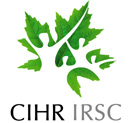
Our team is proud to announce that our new Postdoctoral Fellow, Dr. Nick Dragojlovic, is the recipient of the 2013 Canadian Institutes of Health Research (CIHR) Orphan Drug Policy Fellowship and Michael Smith Foundation for Health Research (MSFHR) Post-Doctoral Fellow Trainee Awards.
The title of his successful application is “Evaluating the Impact of Moral Arguments on Societal Values for Orphan Drug Coverage”.
“The fellowship will allow me to investigate how health policies can incentivize pharmaceutical research and development and how we, as a society, can make sure that the benefits of biomedical innovation are equitably distributed,” says Dragojlovic.
Abstract: Orphan drugs for rare diseases are often very expensive, with the cost of treating a single patient reaching up to $1 million per year. These drugs rarely meet the usual thresholds for efficacy or cost-effectiveness used in health technology assessment, however, which poses a moral dilemma for policy-makers, since the same funds used to treat one individual with a rare disease could provide less costly medications for many more Canadians. Since taxpayers must ultimately bear the costs of funding these treatments through the public insurance system, empirically estimating society’s willingness to pay for expensive treatments for rare diseases, despite the significant opportunity costs, is a key element of democratic decision-making in this area. Using an online survey of 3,000 Canadians, we will explore societal preferences for orphan drug funding by presenting respondents with different scenarios in which provincial health authorities must decide whether or not to fund a specific treatment through the provincial insurance system. The scenarios will vary based on characteristics like the cost of the treatment, the severity and prevalence of the disease it targets, and, crucially, the types of arguments used by proponents and opponents of funding that particular treatment. This survey will provide an estimate of societal willingness to pay for the treatment of rare diseases under conditions that approximate the real-world context in which Canadians might learn about the policy challenge posed by orphan drugs. Knowledge generated will facilitate more informed orphan drug policy decisions consistent with the value that society places on the treatment of rare diseases.
To read the media release, click here








